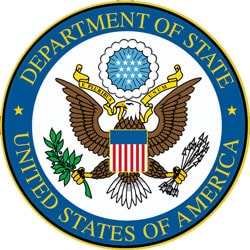Providing a new birth certificate or alternative in your green card application
Every family member applying for a family-based or marriage-based green card must provide a copy of each family member’s birth certificate to the U.S. government. If you already have it, great! You’re one step closer to success.
But if you can’t locate your birth certificate, don’t worry. In this guide, we’ll tell you how to get an official replacement, as well as what types of documents can substitute for your birth certificate when an acceptable copy isn’t available.
RapidVisa will assemble your complete green card application precisely how the government prefers — with your birth certificate and all other required documents — and mail it to your doorstep.
Requirements
Who must submit a copy of their birth certificate?
Both the sponsoring relative (the U.S. citizen or current green card holder) and the family member seeking a green card must provide a copy of their birth certificate (typically the long form version), along with their family sponsorship form, or Form I-130 (officially called the “Petition for Alien Relative”).
What should the birth certificate show?
The certified copy of your birth certificate must include the following information:
- Your full name
- Your date of birth
- Your place of birth
- Both of your parents’ full names
- The issuing agency’s official seal
- Registration date (must be within one year of your birth)
- Issue date (any time)
What if my birth certificate is an “extract”?
If your birth certificate is an “extract” (abbreviated) version of the original, it should include only the above information. An extract copy leaves out any unnecessary details that are useful only to the country or agency that issued the document.
What if my birth certificate is not written in English?
An original birth certificate that is written in a language other than English must be accompanied by a certified English translation.
Where to Get a Certified Copy
You will need to obtain a certified copy of your birth certificate from the appropriate government agency.
If you were born in the United States, that would be the office of vital records in the state where you were born. The Centers for Disease Control and Prevention (CDC) provides the the name and address of each vital records office, as well as the cost of obtaining an official copy.
If you were born abroad, the U.S. Department of State’s website lists the name of the issuing authority in each country, as well as the current fee and procedures for obtaining an official copy. (On the upper left-hand side of this website, you will need to select the first letter of your country’s name, select your country, and click on the “Birth, Death, Burial Certificates” tab to view the information you need.)
If the information for your country of birth specifies that birth certificates are “unavailable” or “nonexistent,” you will not be required to submit this document.
Please note that birth certificates issued by a consulate or embassy of your home country in the United States will not be accepted. You must obtain the birth certificate from the issuing authority in your country of birth.
RapidVisa can help you easily manage your immigration documents for your green card application.
Alternative Documents
If you’re unable to locate your birth certificate or obtain a copy containing the required information, you must submit a notarized personal affidavit (written explanation) in which you describe the facts of your birth and the reason you’re unable to get a certified copy of the document. You must be as specific and detailed as possible in your explanation.
You must also submit one of the following types of secondary evidence:
- A baptismal certificate
- Census records
- A birth certificate issued by a local or military hospital
- A certification of birth from the doctor who delivered you
- An original document from the appropriate government agency in your home country (if not the United States) explaining why your birth record does not exist and indicating whether similar records for that time and place are available
If your birth certificate was issued abroad, make sure to also check the appropriate country’s guidelines for specific types of acceptable secondary evidence.
When none of the above forms of secondary evidence is available, you must submit a notarized personal affidavit from either parent who is living or a close relative who is older than you. The affidavit must include the following from the person who agreed to provide it:
- Their full name, address, date and place of birth
- Their relationship to you
- How well they know you
- The date and place of your birth
- The names of both of your parents
- Other details describing the circumstances and facts of your birth


